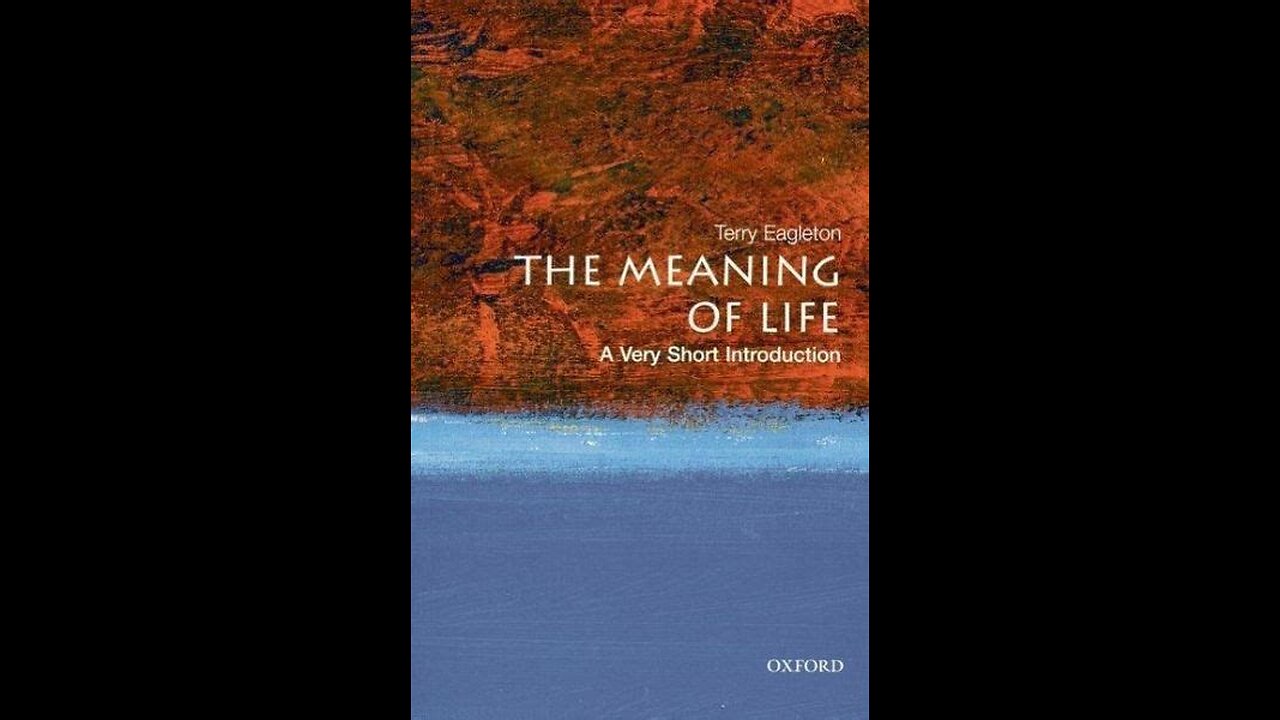Premium Only Content

The Meaning of Life by Terry Eagleton | Summary and Critique
Buy Here: https://amzn.to/3W9Qo8X
"""The Meaning of Life"" by Terry Eagleton is a thought-provoking exploration of the concept of meaning and its significance in human existence. Eagleton, a prominent literary critic and cultural theorist, delves into philosophical, theological, and existential perspectives to examine the perennial question of the purpose and significance of life.
Eagleton begins by surveying various historical and cultural understandings of the meaning of life, ranging from religious and metaphysical frameworks to secular and existentialist perspectives. He critically engages with thinkers such as Aristotle, Nietzsche, and Sartre, highlighting their contributions and limitations in addressing this profound philosophical inquiry.
The book delves into the complexities of the human condition, grappling with existential dilemmas, the search for identity, and the quest for transcendence. Eagleton explores the ways in which cultural, social, and personal factors shape our understanding of meaning and influence the paths we choose in life.
Drawing on literary and artistic works, Eagleton argues for the significance of narrative and storytelling in constructing meaning. He suggests that narratives, whether religious, mythical, or fictional, offer frameworks that give structure and purpose to human experiences.
Critique of ""The Meaning of Life"" revolves around the subjective and elusive nature of the topic. Some argue that Eagleton's exploration may lack definitive answers or conclusive insights, given the inherent complexity and diversity of human experiences. Critics also question whether Eagleton's focus on cultural and literary perspectives adequately captures the full spectrum of existential inquiry.
However, supporters of Eagleton's work appreciate his interdisciplinary approach, which combines philosophy, literature, and cultural analysis. They value his nuanced examination of the multifaceted nature of meaning and his recognition of its personal, social, and existential dimensions.
""The Meaning of Life"" serves as a catalyst for introspection and intellectual inquiry, prompting readers to reflect on their own experiences, beliefs, and values. Eagleton's work encourages individuals to engage critically with different perspectives and narratives, ultimately cultivating a richer and more meaningful understanding of their own lives.
While recognizing the complexities and limitations inherent in the pursuit of meaning, Eagleton's book invites readers to contemplate the profound questions that shape human existence, encouraging a deeper exploration of the purpose, significance, and possibilities of life itself."
-
 6:32:11
6:32:11
Akademiks
8 hours agoDrake Finally CUTS off FAKE FRIENDS in the Industry. VIOLATES KHALED, LEBRON! Announces album Feb14
68.7K11 -
 27:28
27:28
Glenn Greenwald
11 hours agoGlenn Reacts to Trump's Gaza Take Over: System Update Special
174K290 -
 2:13:49
2:13:49
Melonie Mac
8 hours agoGo Boom Live Ep 36!
92.5K9 -
 1:02:11
1:02:11
Sarah Westall
8 hours agoFreezing USAID & its Operations in Ukraine: A Massive Money Laundering Organization? w/ Sam Anthony
84K17 -
 2:05:35
2:05:35
Space Ice
12 hours agoSpace Ice & Redeye: Neil Breen's Pass Thru
34.5K1 -
 1:00:23
1:00:23
The StoneZONE with Roger Stone
8 hours agoRoger Stone Talks Trump’s Electric First 100 Day Agenda | The StoneZone w/ Roger Stone
39.3K8 -
 DVR
DVR
Redacted News
11 hours agoBREAKING! EPSTEIN LIST INCOMING UNDER AG PAM BONDI? DEMOCRATS FREAKING OUT, PRINCE ANDREW NERVOUS
188K268 -
 52:02
52:02
Candace Show Podcast
13 hours agoBecoming Brigitte: An Inaccessible Past | Ep 2
174K264 -
 2:07:26
2:07:26
2 MIKES LIVE
11 hours ago2 MIKES LIVE #176 News Breakdown Wednesday!
33.1K2 -
 1:39:11
1:39:11
I_Came_With_Fire_Podcast
12 hours agoGAZA TAKEOVER | USAID EXPLAINED | TARIFF TAKEDOWN
51.3K9